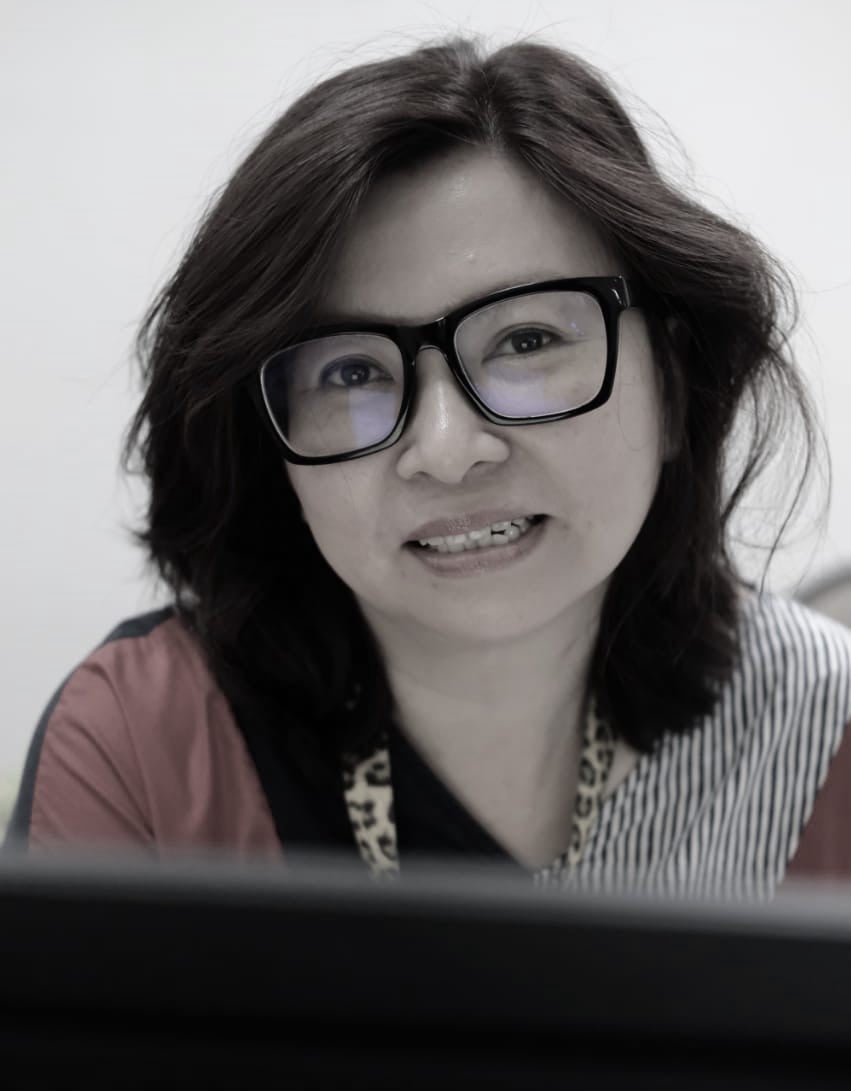
Jakarta-based senior journalist, Evi Mariani, is the Co-founder and Chief Editor of Project Multatuli, a public service journalism initiative. Before starting this organization, she was the Managing Editor at The Jakarta Post, one of Indonesia's oldest and most respected newspapers. Her critical work has been widely published and recognized. She received SOPA Award for Excellence in Public Service Journalism in 2020. Her collaborative project also won a 2020 Tasrif Award and 2020 Indonesia Print Media Awards Golden Award for Investigative Journalism. Evi has received her Master’s degree in Urban Studies from University of Amsterdam. She was also a 2011–2012 Hubert Humphrey Fellow at Philip Merrill College of Journalism in University of Maryland.
What inspired you to become a journalist?
When I was young at the university, I wanted to see the world. And I thought the best job to allow me to see the world was journalism. I was right.
What does value-based journalism mean to you?
To me, being a journalist has always been more than a way to earn money. I need to earn a living, yes, but being a journalist means you contribute something to the society, at the very least to give in-depth, good information so the readers can make well-informed decisions not only for themselves but also for the better world. In a time when injustice, oppression, corruption, and natural resources degradation are happening, journalism has a public duty, even though they’re not public servants, to give information on the problems with rich perspectives to inspire robust and healthy public deliberation so the society can find the solutions. We can do this only if we believe there are universal values inherent in journalism.
What advice would you give to future journalists or young journalists just starting their careers?
Being a journalist means having some power to improve the situation but also to hurt others. Use your power wisely. You probably cannot change the world, but at least don’t make it worse.
What kind of challenges have you faced while pursuing public journalism?
I believe “public journalism” is actually redundant. Journalism should be for the public. However, in practice, journalism serves the powerful more than the marginalized. And when it serves the political elites and corporates more than the others, it has betrayed the public mandate. It happens because some elements of public journalism (investigation, research-based, data-based stories, in-depth, on-the-ground stories) cost money, and with the increasing power of the 1 percenter globally, journalism gets money from those who have the money: the powerful. Firewall that worked relatively well in the pre-digital era had crumbled. The question is now how can we fund good, public journalism with money that doesn’t come with interests other than for the public.
What is Project Multatuli, which you’ve co-founded? What was the idea behind it?
Project Multatuli is a public service journalism initiative and the first, and only, member-focused media outlet in Indonesia. Its mission is to serve the underreported and hold power accountable. For the first years of our operations, we want to disrupt three dominant practices in Indonesia’s media industry: media that serve the elite more, male-centric editorial policy, and Jakarta-centric news. The idea behind it is to address information gap, shrink the news desert and as a self-reflection and self-criticism of our journalistic practices.
How do you balance business pressure and journalism values?
We limit our operations to a scale that allows us to seek revenue streams only from grants, membership, and our earned revenue (cooperation with organizations sharing the same values, the same mission, training, events, etc). We have to carefully calculate the right size of the organization. We only buy digital tools that are essentials, and whenever there is a chance to get free or discounted digital tools (like Flourish and Canva for nonprofit, Google Non Profit), we use them. Pandemic also brought online working culture, which cut a lot of cost.
Collaboration and a network of like minded people with great skills also help us save some human resource costs. Collaboration with other media outlets increases our impact as well. We work with a lot of freelancers. We want to be able to give them better working conditions and benefits, but we haven’t reached that goal.
What factors have played a key role in Project Multatuli ‘s success as a commercially viable and sustainable independent media organization?
Great teamwork (picking the right people, good leadership), collective ownership of the organization that allows all team members to give their best, transparent, accountable working culture, a combination of journalists and people who have business acumen working together for the same goals, and the journalists’ stellar reputation when we began our work and later their high-quality, impactful works as journalists.
As a former Managing Editor of The Jakarta Post, what is your opinion on the future of print media in Indonesia and beyond?
Even if print media continue to get subscribers, the medium does not allow it to innovate much, hence it will be difficult to make any impact with only print media. It has to combine the platform with digital.
Where do you see digital journalism heading in the next five years?
We are currently at the crossroads: continuing journalism’s unhealthy relationship with big tech logic, algorithms or finding some way out of it. Many scholars, journalists, and journalism institutions, are working hard to find different ways to do journalism other than kowtowing to SEO, algorithm, so I’m optimistic that the remaining journalists in this harsh battle brought by digital disruption would deliver some good news. Project Multatuli is actively taking part in the endeavor.
Disclaimer: The views and opinions expressed by those interviewed by the Danish Siddiqui Foundation, including all program participants, are solely their own current opinions regarding events and are based on their own perspectives and opinions. The views and opinions expressed do not necessarily reflect the views or opinions of the Danish Siddiqui Foundation, or the companies with which any program participants/interviewees are, or maybe, affiliated.

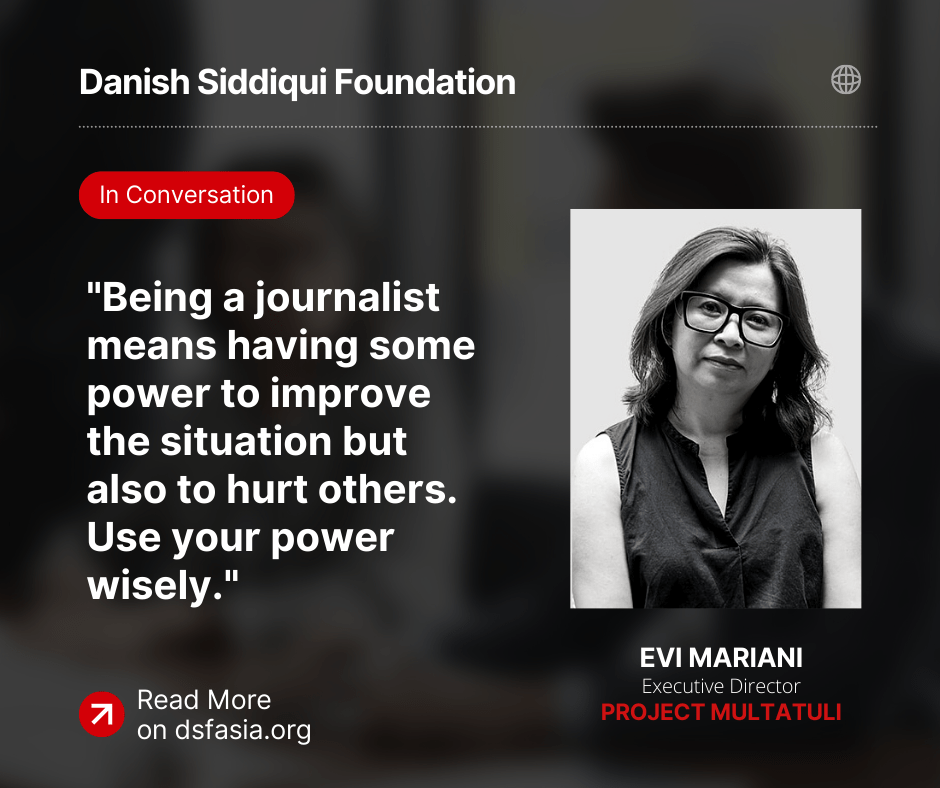
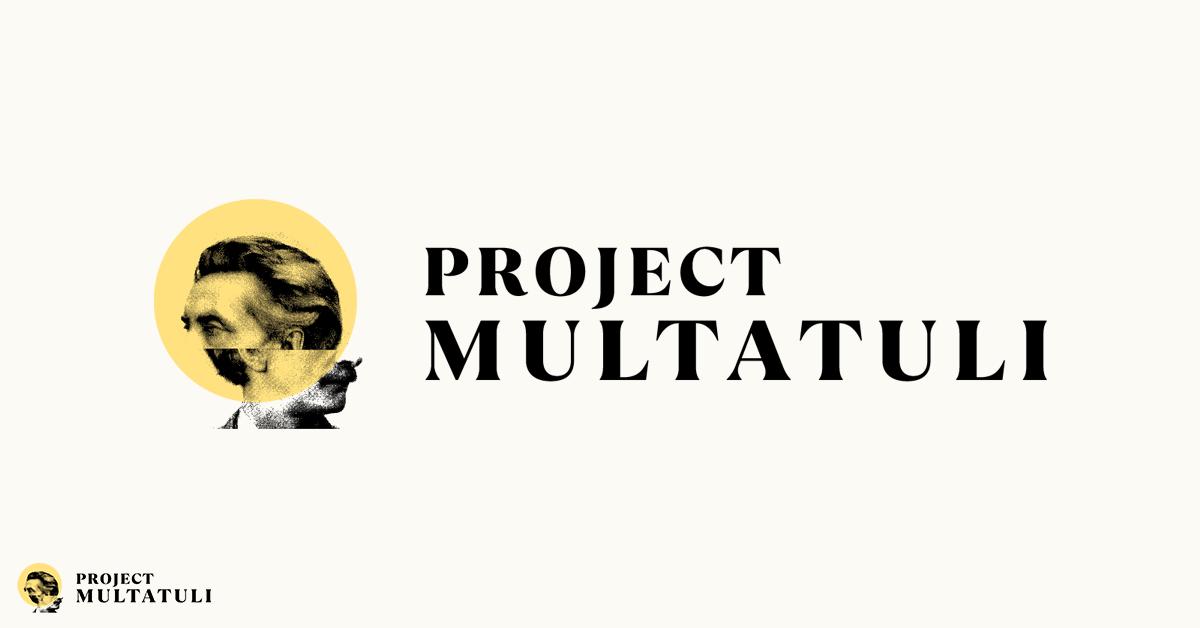
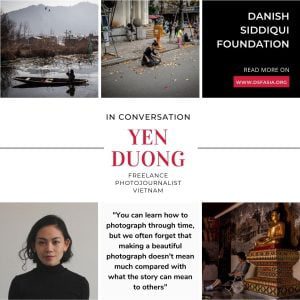
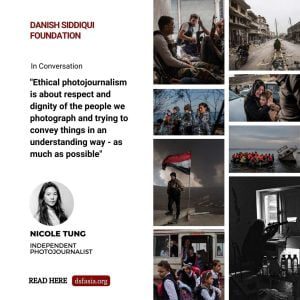
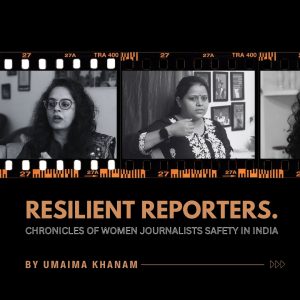
Pingback: The Fulbright Diversity Podcast Eps 22